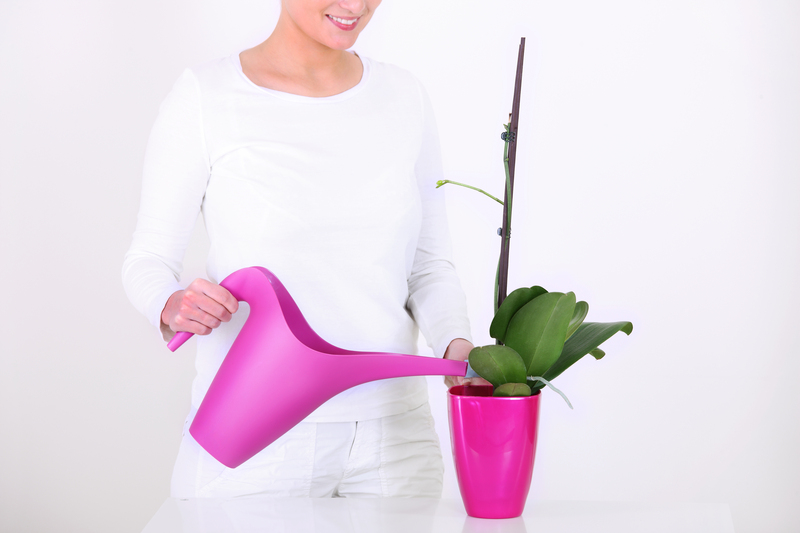Conserve Water in Your Garden
Posted on 01/11/2024
Maintaining a beautiful and thriving garden is a goal for many homeowners and gardening enthusiasts. However, with environmental changes and growing concerns about water scarcity, it's essential to adopt water-conserving practices. Conserving water in your garden not only helps the environment but also reduces water bills and promotes sustainable gardening. Here's how you can achieve a lush garden without wasting valuable resources.
Understanding Water Conservation
Water conservation in gardening involves using water efficiently to ensure plants' growth while minimizing waste. This can be achieved through various methods such as selecting drought-resistant plants, improving soil health, and using advanced irrigation techniques.

Choosing the Right Plants
One of the simplest ways to conserve water in your garden is by choosing plants that are well-suited to your local climate and require less water. Native plants and drought-resistant species are excellent options. These plants are adapted to the local environment and can thrive with minimal water.
Improving Soil Quality
Healthy soil retains moisture better and supports plant growth. Improve your soil by adding organic matter such as compost or manure. This enhances soil structure, increases water-holding capacity, and provides essential nutrients to plants.
Efficient Watering Practices
Watering your garden effectively is crucial for water conservation. Water early in the morning or late in the evening to reduce water evaporation. Use a soaker hose or drip irrigation system to deliver water directly to the plant roots, minimizing water loss due to wind and evaporation.
Mulching
Applying a layer of mulch around plants helps retain soil moisture, reduce weed growth, and moderate soil temperature. Organic mulches such as straw, wood chips, or compost are ideal as they eventually break down and add nutrients to the soil.
Collecting Rainwater
Installing a rainwater harvesting system can significantly reduce your dependency on municipal water supplies. Collect rainwater from your roof using barrels, and use this free resource to water your garden.
Group Plants by Water Needs
Grouping plants with similar water needs can optimize watering efficiency. This practice, known as hydrozoning, ensures that each plant receives the appropriate amount of water without overwatering or underwatering others.
Implementing Smart Technology
Smart irrigation controllers and sensors can automate and optimize watering schedules based on weather conditions, soil moisture levels, and plant needs. These technologies help prevent overwatering and ensure efficient water use.
Regular Maintenance
Keeping your irrigation system well-maintained prevents leaks and water wastage. Regularly check for broken or clogged sprinklers and repair them promptly.
Pros and Cons of Water Conservation in Gardening
Pros:
- Reduces water wastage and lowers water bills
- Promotes sustainable gardening practices
- Maintains healthy and thriving plants
- Supports environmental conservation efforts
Cons:
- Initial setup costs for efficient irrigation systems and rainwater harvesting
- Requires time and effort to implement and maintain best practices
- Limited plant choices based on drought-resistance and local climate
Tips for Conserving Water in Your Garden
- Use organic mulch to retain soil moisture.
- Install rainwater barrels for collecting rainwater.
- Plant native and drought-resistant species.
- Implement drip irrigation systems for efficient watering.
- Water plants early in the morning or late in the evening.
- Improve soil health with organic matter.
- Use smart irrigation controllers to automate watering schedules.
- Regularly inspect and maintain your irrigation system.

Takeaways
- Conserving water in your garden is crucial for sustainability and environmental conservation.
- Selecting the right plants, improving soil quality, and using efficient watering practices are key strategies.
- Regular maintenance and leveraging smart technology can optimize water use.
- The benefits include lower water bills and healthier plants, although initial setup may require investment.
Conclusion
Conserving water in your garden is an important step towards sustainable living and environmental stewardship. By implementing the strategies outlined above, you can create a thriving garden that uses water efficiently and responsibly. Embrace water conservation practices, and you'll find that a beautiful garden doesn't have to come at the expense of our planet's precious resources.
Latest Posts
Must-Try Planting Concepts for a Beautiful Autumn Garden
DIY Guide to Perfectly Sharpening Garden Shears at Home
Essential Techniques for Maintaining Clean and Lush Artificial Grass
Transform Your Space With Meaningful Zen Garden Plant Choices




